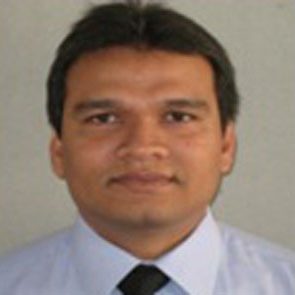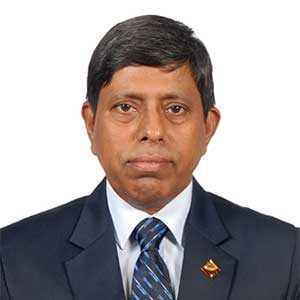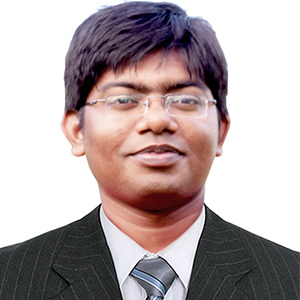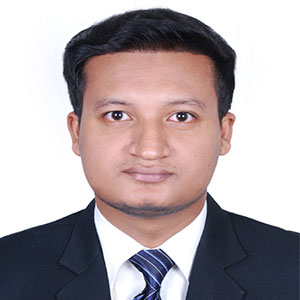Department of Chemistry
Chemistry is the science of matter and energy and so is the central science. There are nine million chemical substances and more 400-500 are pouring in every day. Every chemical can undergo hundreds of chemical reactions and each one is inevitably associated with emission or absorption of energy. The emitted energy is used in household services, aviation, rocketry, industrial production, and all other natural and manmade activities. Many chemical reactions come up with new products to find new uses. Thus the material word shines and also reserves the potential to grow more food, find new energy sources, and discover new health saving drugs. The stakes of chemistry are low but each one is a great leap forward.
Obviously chemistry plays fundamental role in science, engineering, and technology. Plant growth and metabolism, production of inorganic fuels, formation of igneous rocks, the role of ozone in the atmosphere, the degradation of environmental pollutants, the action of drugs and establishment of forensic evidence are understood only from the knowledge and perspective of chemistry. Knowledge of chemistry contributes to the advancement of our daily life in easing poverty and eradicating most of the deadly diseases, traveling faster and making our lives more convenient and comfortable. Chemistry plays also a vital role in developing crop-enhancing, safe agricultural chemicals to ensure a constant and viable food supply and life-saving pharmaceuticals, pesticides, plastic and synthetic fibers.
People involved in these areas, therefore must have an understanding of the factors associated with these technologies and skills. Development of such understanding and skill requires careful preparation through academic program and practical excises. Department of chemistry at the College of Arts & Science, IUBAT, provides an opportunity for developing intellectual background and skill in young students. At present the Department is discharging its responsibilities towards building strong background on general chemistry and higher organic chemistry to undergraduate students of various departments of IUBAT. It helps preparing students with solid foundation to face a challenging life and enjoying a rewarding career in the field undergoing continuous technological changes. Challenges of present day chemistry include comprehensive treatment of diseases and disorders of the living world, ensuring faster and quality growth of food, and finding inorganic and renewable energy sources such as conversion of coal into petroleum, water into hydrogen, and solar energy into new forms of chemicals.
The students of the university are encouraged to study chemistry on fundamental concepts, atomic theory, atomic and molecular structure, stoichiometry, periodic classification of metals, metalloids, and nonmetals, liquid and gases, concentration of solution, types of reactions, acids, base, salt, chemical bonding, oxidation-reduction, precipitation reaction, chemical kinetics, phase equilibrium, including solvent extraction, electrochemistry including corrosion and its prevention, introduction to organic chemistry with emphasis on nomenclature, natural and synthetic polymers, chemical spectroscopy, preparation and properties of different organic compounds.
More important is that chemistry teachers and undergraduate students have undertaken the project to work round the year and study water quality of the nearby Turag River continuously for years in order to develop statistical models for pollution and depollution by an insitu conversion method of organic pollutants into carbon dioxide . Water quality paramers being studied are pH, conductivity, specific gravity, total solid, dissolved solid, and DO. In another field diffusion of chemicals are studied to determine the absolute and relative velocities of chemicals and biochemicals, to characterize diffusion controlled reactions, solvent properties, factors responsible for the quick transfer of biological molecules and medicines into human body, and establish methods for isotope separation and mass transfer in industrial process using an instrument termed Desh Diffusimeter and a law of Turbulent Super Diffusion developed and discovered by Prof Abul Khair, Department of Chemistry, IUBAT.
The Department of Chemistry is planning to start Bachelor of Science in Chemistry program in chemistry soon which will include physical, inorganic, organic, analytical, industrial, and nuclear chemistry. Special emphasis will be given to nano and materials chemistry forensic chemistry, operational processes of nuclear power plant, disposal of nuclear wastes including their impact on environment and public health. Presently the department of chemistry provides critical support to many programs in the University specially giving more in depth text and ecercises on agriculture, engineering, nursing, and health sciences.
Chemistry Laboratory
The chemistry laboratory of the department is well equipped for qualitative and quantitative analysis. It provides facilities for chemical synthesis, investigation of physical and chemical properties such as reactivity of nano particulates, solubility, melting point, and boiling point. The laboratory has now a hot plate with stirrer, water distillation plant, rough balance, analytical balance, pH meter, conductivity meter, specific gravity equipment, suction pump, DO meter, and oven. Most remarkable is that the chemistry faculties and the university engineers developed an excellent fumehood rare in its structure and efficiency.
Faculty Members

Professor & Coordinator

Professor

Associate Professor

Assistant Professor

Assistant Professor

Assistant Professor



